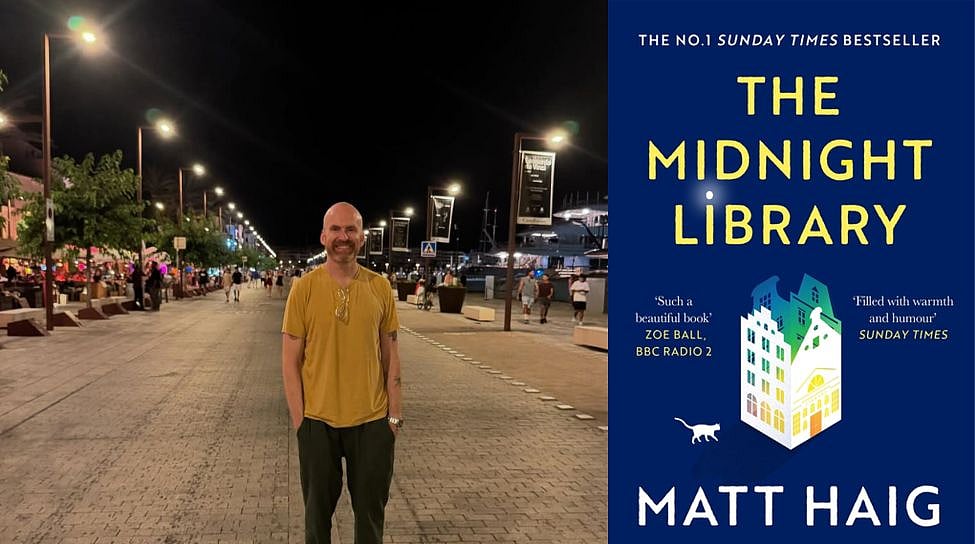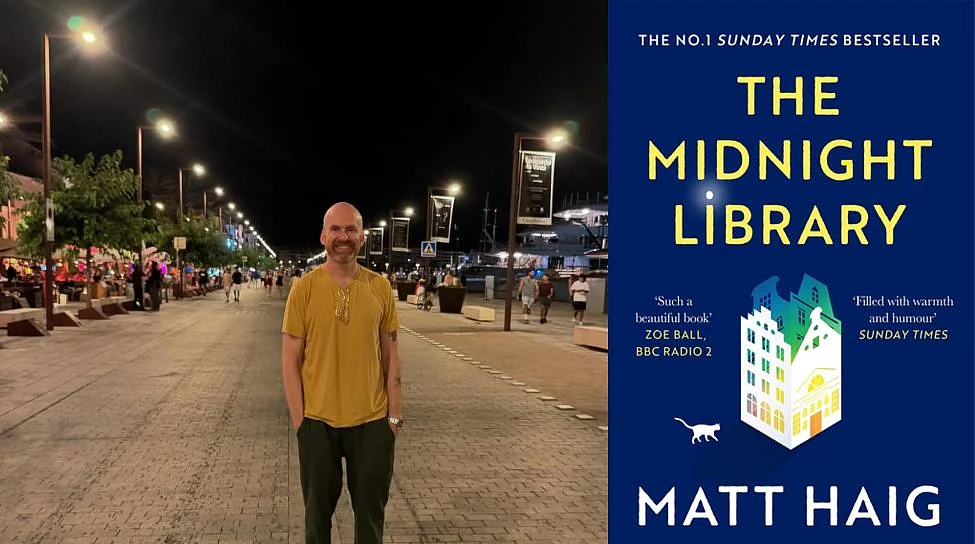Matt Haig's 'The Midnight Library' truly enlivens the idea that, as you read a book, you traverse into an alternative world, living an imagined life alongside the characters whose actions and thoughts you read about.
Beware, for spoilers do lie ahead!
'The Midnight Library' traces the life (or afterlife) of Nora Seed, who is nothing but disappointed with herself and filled to the brim with regrets.
Upon committing suicide, Nora finds herself in the Midnight Library — her in-between, sandwiched by life and death — advised by her high school librarian.
Every book she takes off the shelves opens to an alternative life, in which she may be able to tie up loose ends and regrets, at the risk of being a repetitive plotline. And possibly, find a life in which she could live forever. Nora will be removed from a book (or a life) when she is completely disappointed with it.
In book hopping, Nora seeks to find the best way to live.
Rather than deconstructing whether this book is good or bad, worth one star or five, one might ask: what lessons does 'The Midnight Library' offer?
Psychological Issues Are Not Something to Be Ignored
As you can imagine, the book explores suicide, depression and grief, among other emotional responses — many of which, stem from a space of unresolved trauma. However, this exploration remains surface-level.
Haig builds suspense towards Nora's decided death right from the first page: 'nineteen years', 'twenty-seven hours', 'four hours before she decided to die.'
In her suicide note, Nora is described to exist in a bottomless pit of feeling like she cannot make anything of her life.
Self-loathing is common in individuals at the risk of committing suicide. However, Haig portrays Nora Seed as someone who repeatedly gives up on passions without any substantial explanation. An interest in swimming given up made her an Olympian in one timeline. Her profession as a music store clerk — which she lost shortly before she died — turned her into a musician in another.
The Subtle Dangers of Pessimism
Nora Seed, the pessimist, is an expert in injecting the negative mental attitude into any situation. In Haig’s characterisation of the protagonist, unfortunately, her tainted worldview may render her somewhat unlikeable.
Pessimism is a state where one expects the worst across circumstances. It may start off as an entertaining bit. But when it becomes habitual, the practice is hard to break out of.
Although people comment on pessimists as unpleasant, the trait can
1) grow into anxiety by overthinking problems and triggering feelings of worry, as one expects the worst, and
2) depression because pessimists are vulnerable to hopelessness and negative emotions — among other mental conditions.
Your Relationship with Yourself and Others
'The Midnight Library' portrays Nora as a character layered with complex relationship issues, not just with herself, but with the people around her — namely her brother. Their falling out in Nora’s real-life consequences a good relationship between the siblings in some lives but not in others.
In doing so, the author seems to toy with the fictional character's reality.
This highlights the way one views themselves as a factor affecting the maintenance of familial ties and friendships, as well as one’s relationship with themselves.
Nora's struggle with self-worth is a driving force of the plot. And this book serves as a reminder of how destructive such internalised negativity can become when left unaddressed.
The Importance of Discovering Your Own Space and How to Exist in It
Credit to the author's creativity: the concept of having an individualised space between life and death for each person characterises their personal relationship with their own existence.
The protagonist has a library. A secondary character, Hugo, has a video store — through which he is led by his Uncle Phillipe, as Nora is by her school librarian. Another supporting character has a restaurant, where every meal 'literally’ transports them to another life. It makes one wonder what they would like their in-between to be.
Turning the page from fiction to reality, 'The Midnight Library' may recognise the importance of creating your own space — one that reflects who you are.
Exposure and Becoming Well-Read
Despite the dramatisation of reading a book in 'The Midnight Library', Haig unlocks a thought process of how books may be a form of exposure. Whether fiction or non-fiction, reading opens audiences to new worlds and perspectives.
'The Midnight Library' sparks conversation about life and death. Utopias (or dystopias, for that matter) prompt audiences to question reality, its future and our understanding of it. Fantasies charge our imagination and expose us to a utopian world.
At its core, 'The Midnight Library' is often seen as a self-help book, encouraging readers to make the most of their one life, despite being an overused message.
But looking at it more closely, Matt Haig seems to be doing something simpler: he urges readers to explore what they enjoy and set goals while accepting that challenges will come up along the way.










